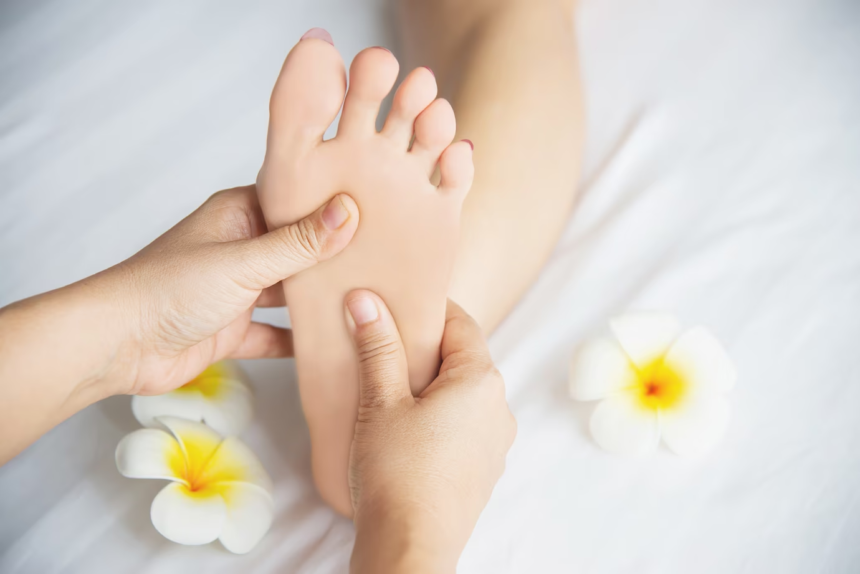Sleep is an essential aspect of our overall well-being, and insufficient or poor-quality sleep can have detrimental effects on our physical and mental health. In South Africa, where many individuals struggle with sleep-related issues, exploring alternative therapies to promote better sleep is crucial. Reflexology, an ancient practice that focuses on applying pressure to specific points on the feet, offers a natural and non-invasive approach to improve sleep quality. By understanding the benefits of reflexology and incorporating it into their wellness routines, individuals in South Africa can potentially experience more restful and rejuvenating sleep.
- Relaxation and Stress Reduction: Reflexology promotes deep relaxation, which is beneficial for inducing sleep. By applying pressure to specific reflex points on the feet that correspond to various organs and systems of the body, reflexologists stimulate the body’s natural relaxation response. This can help reduce stress levels, ease tension, and create a calm state of mind conducive to better sleep.
- Improved Circulation and Energy Flow: Reflexology stimulates blood circulation and enhances the flow of energy throughout the body. By massaging and applying pressure to specific reflex points, reflexologists aim to restore balance and remove blockages in the body’s energy pathways. Improved circulation and energy flow can have a positive impact on sleep by promoting physical and mental relaxation and facilitating the body’s natural healing processes.
- Pain Relief and Relaxation of Muscles: Reflexology can help alleviate pain and tension in the body, including pain that may be interfering with sleep. By targeting specific reflex points on the feet, reflexologists can provide relief for common sleep disruptors such as headaches, backaches, or muscle tension. The relaxation of muscles achieved through reflexology can help individuals unwind and prepare for a more comfortable and restful sleep experience.
- Stress Hormone Regulation: Reflexology has been found to help regulate the body’s stress hormone levels, including cortisol. Excessive levels of cortisol can interfere with sleep and contribute to sleep disturbances. By reducing stress and promoting relaxation, reflexology may help regulate the body’s stress response, leading to improved sleep quality and a more balanced hormonal state.
- Overall Well-being and Sleep Quality: Reflexology is a holistic therapy that addresses the individual as a whole, promoting overall well-being. By targeting various reflex points that correspond to different organs and systems in the body, reflexology aims to restore balance and harmony. When the body is in a state of balance, sleep quality is often improved, as the body is better able to regulate its natural sleep-wake cycles.
Incorporating Reflexology into Sleep Routines:
- Professional Reflexology Sessions: Seek out a certified reflexologist who has experience working with individuals struggling with sleep issues. Regular sessions can provide ongoing support and maximize the potential benefits of reflexology for sleep.
- Self-Reflexology Techniques: Learn simple self-reflexology techniques that can be practiced at home. These techniques can involve gentle massaging or applying pressure to specific reflex points on the feet. Consulting with a reflexology expert or using reputable resources can help in learning the appropriate techniques.
- Establish a Bedtime Ritual: Incorporate reflexology into a bedtime ritual by spending a few minutes massaging and applying pressure to your own feet or asking a partner or family member for assistance. Combine this practice with other relaxing activities such as deep breathing exercises, meditation, or gentle stretching to create a soothing routine that signals your body it’s time to unwind and prepare for sleep.
- Combine with Other Sleep-Enhancing Practices: Reflexology can complement other sleep-enhancing practices such as maintaining a consistent sleep schedule, creating a calming sleep environment, practicing relaxation techniques, and implementing a regular exercise routine. By combining these strategies, you can optimize your chances of achieving better sleep quality.
- Consult a Healthcare Professional: If you have underlying health conditions or persistent sleep issues, it’s important to consult a healthcare professional. They can provide a comprehensive evaluation, address any potential underlying causes, and guide you on incorporating reflexology alongside other recommended treatments or therapies.
It’s important to note that reflexology is a complementary therapy and should not replace medical advice or treatments prescribed by healthcare professionals. However, as a non-invasive and relaxing practice, reflexology holds the potential to support improved sleep quality for individuals in South Africa seeking a natural and holistic approach to better sleep.










